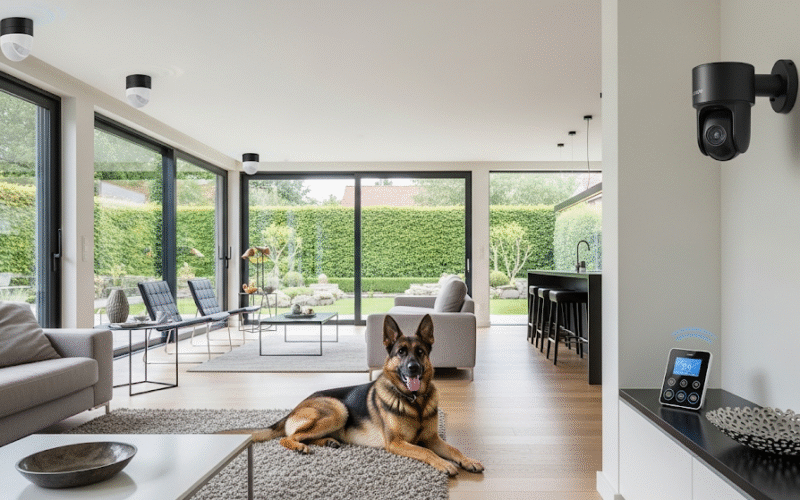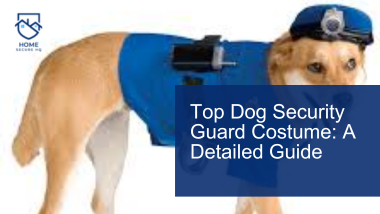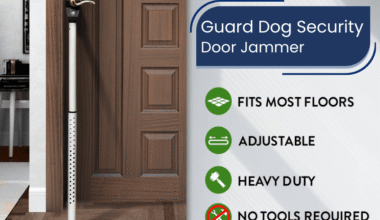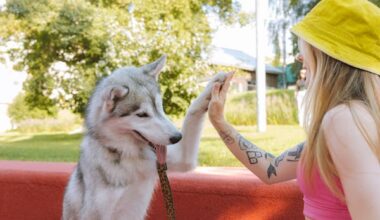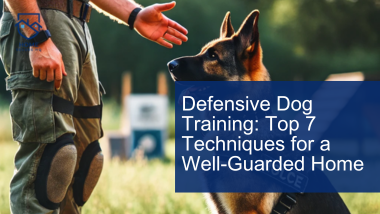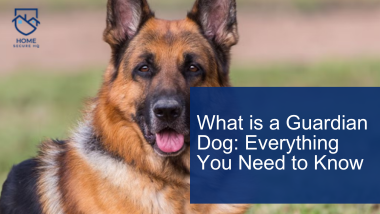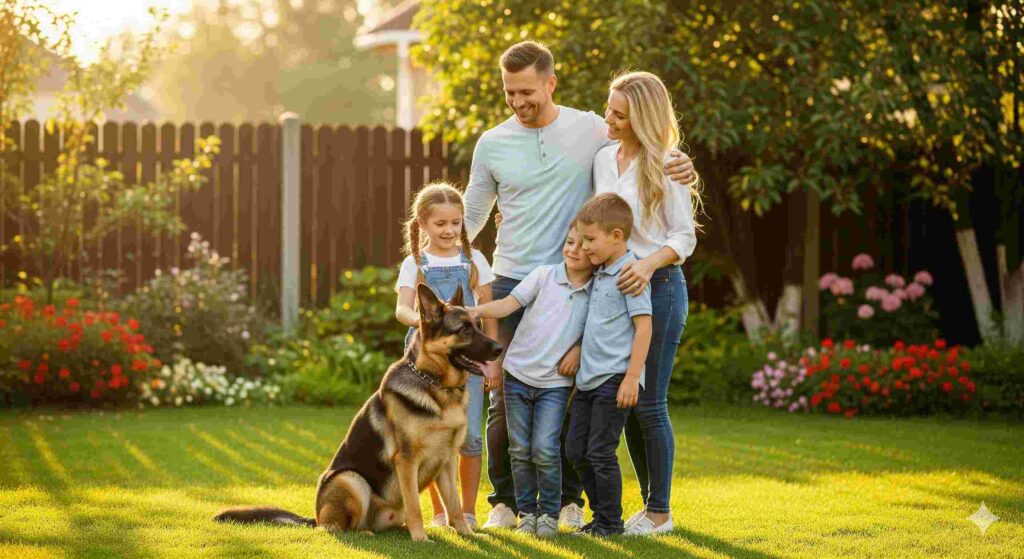
Most people believe that owning a German Shepherd automatically makes their home safe. But that couldn’t be further from the truth.
Without proper training, even the smartest dogs can become either too aggressive or completely unreliable when it matters most.
This is why learning how to train a guard dog German Shepherd is not just important, it’s a responsibility.
In this guide, we’ll clear up common myths and give you a simple, step-by-step path to success.
You’ll learn how to raise and channel their natural instincts into calm, controlled behavior keeping your loved ones safe without losing trust or affection.
Why Choose a German Shepherd as a Guard Dog?
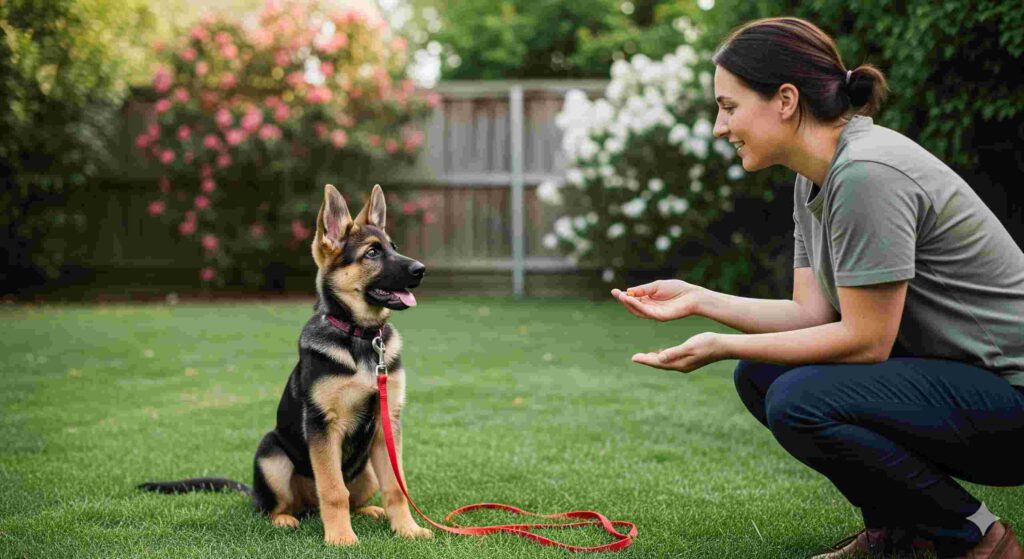
Natural Traits That Make Them Perfect Protectors
German Shepherds are one of the top choices for guard dogs because of their loyalty, intelligence, and trainability.
They learn quickly, enjoy working with people, and respond well to consistent guidance. This makes them excellent for beginners who may be learning how to train a guard dog German Shepherd for the very first time.
Beyond their intelligence, these dogs have strong protective instincts. They stay alert to their surroundings and notice changes immediately.
Unlike breeds that can become overly aggressive, a properly trained German Shepherd combines protection with control.
They can guard without being unpredictable, which makes them safe around families, children, and visitors.
Another key strength is adaptability. German Shepherds thrive in both family homes and high-security environments.
Whether they are living with children or protecting a high-profile client, they adjust to the role you prepare them for.
This ability to be both a loyal companion and a reliable protector is why they are trusted worldwide.
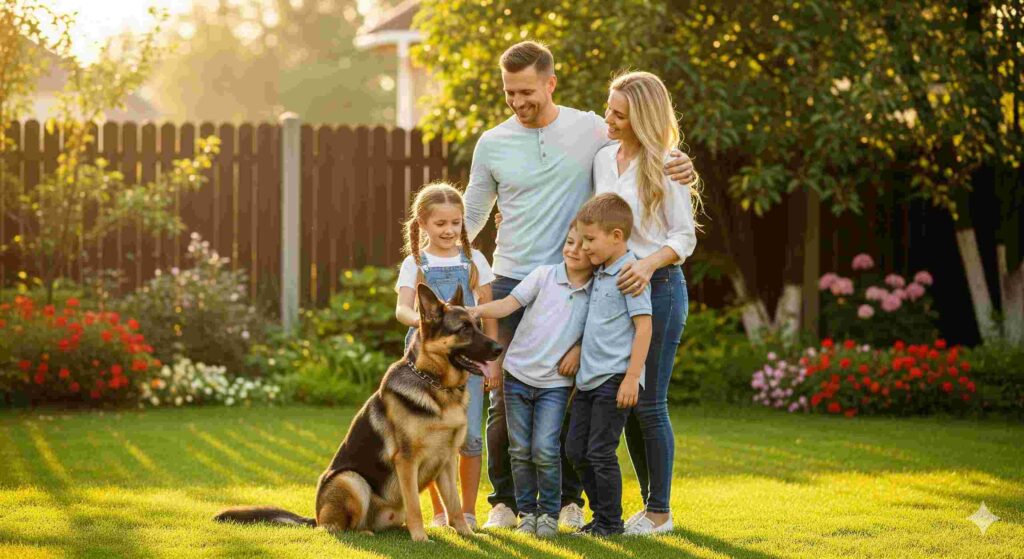
Comparing Guard Roles for Families vs. High-Security Needs
For families, a German Shepherd is both a playful companion and a natural guardian.
They can interact safely with children while still keeping strangers away.
With proper training, they know when to stay gentle and when to step into their protective role.
For executives and people in high-risk areas, German Shepherds provide constant alertness and strong deterrence.
Their size, discipline, and presence alone discourage intruders, while their training ensures they can react quickly if needed.
In high-crime environments, they bring peace of mind as both trusted companions and effective security partners.
Preparing Your German Shepherd for Guard Training
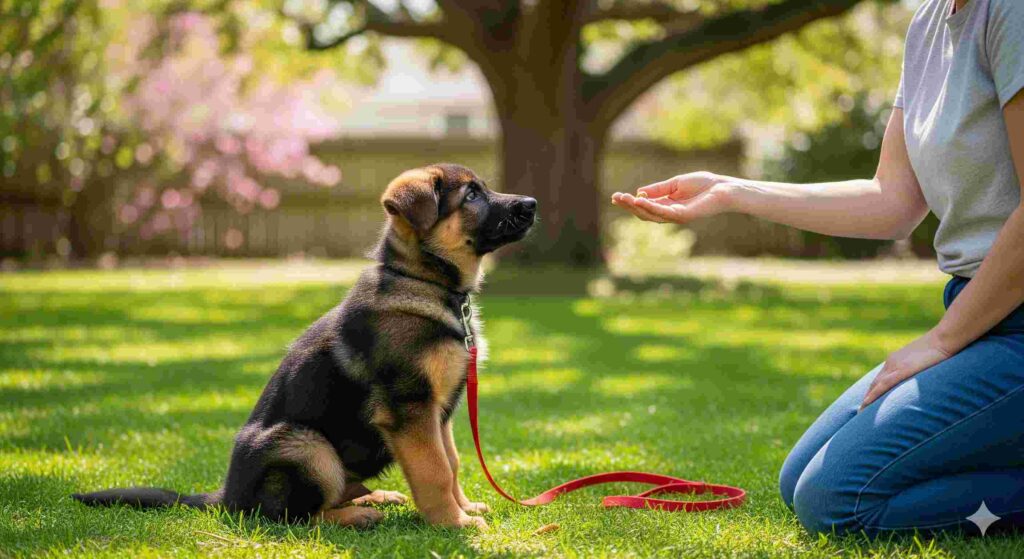
The Right Age to Begin Training
The age you begin training plays a huge role in how well your German Shepherd learns. The puppy stage, between 8–12 weeks, is the best time to start basic obedience and bonding.
At this stage, focus on simple commands like sit, stay, and come. These early lessons create trust and build the foundation for future guard work.
By 6–12 months, your dog is more mature and ready for advanced, guard-specific tasks. This includes alerting to strangers, focused watching, and controlled protective behaviors.
Starting guard training too early can overwhelm a pup, while waiting too long may lead to stubborn habits.
If you’re learning how to train a guard dog German Shepherd for the first time, always match the training stage to your dog’s age and maturity.
Creating the Ideal Training Environment
Your dog’s environment is just as important as timing. A calm and structured household routine helps your German Shepherd feel secure and ready to learn.
Consistent schedules for feeding, play, and training reduce stress and make lessons stick.
You’ll also need the right tools:
- A strong leash for control.
- A crate for safe rest.
- Toys for stimulation and bonding.
- Treats for positive reinforcement.
Finally, provide safe spaces to practice. A fenced yard, quiet field, or controlled outdoor area gives your dog room to focus without distractions or danger.
With the right setting, your German Shepherd learns discipline, confidence and essential skills before moving into advanced guard training.
Step-by-Step Guard Dog Training Process
Step 1 – Basic Obedience Training
Before learning guard skills, your German Shepherd must master basic obedience. Commands like sit, stay, come, and heel build discipline and ensure your dog listens in any situation.
Use positive reinforcement (treats, praise, or toys) to reward good behavior. Avoid punishment, which often leads to fear or aggression.
Establish yourself as the pack leader early. A German Shepherd that respects your role will follow commands with confidence and reliability.
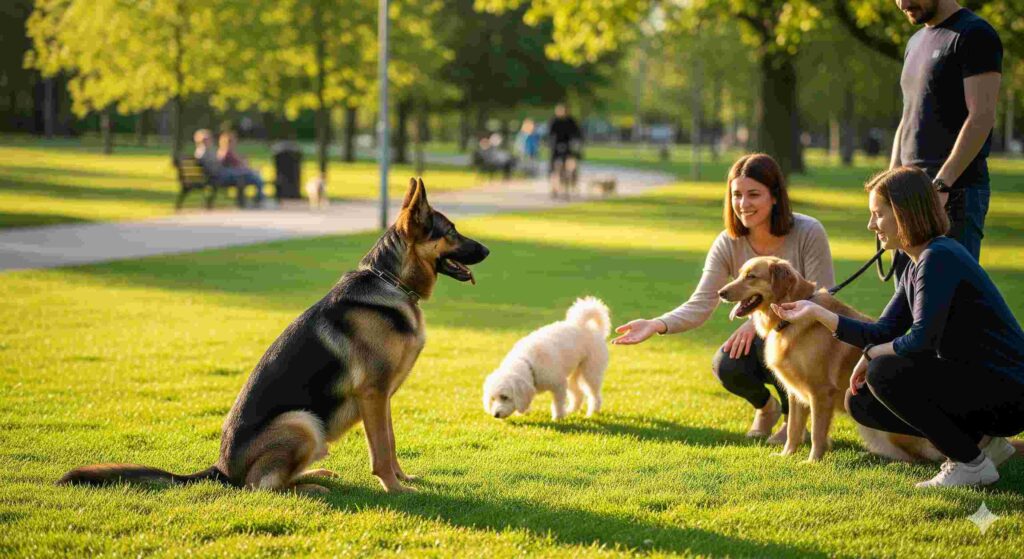
Step 2 – Socialization and Controlled Exposure
Socialization is critical when learning how to train a guard dog German Shepherd.
Introduce your dog to strangers, visitors, children, and other pets in safe, controlled settings.
This prevents unnecessary aggression and helps your German Shepherd distinguish between friendly guests and real threats.
Expose them to different environments (parks, busy streets, or unfamiliar homes). A well-socialized German Shepherd is calmer, more confident, and more reliable as a protector.
Step 3 – Teaching Protective Behaviors
Once obedience and socialization are strong, move to protective behaviors. Teach the watch command to focus on strangers or unusual activity.
Train controlled barking on cue, so your dog alerts without constant noise.
You can also encourage them to stand between you and a stranger, reinforcing natural guarding instincts while keeping control.
Step 4 – Advanced Guard Commands
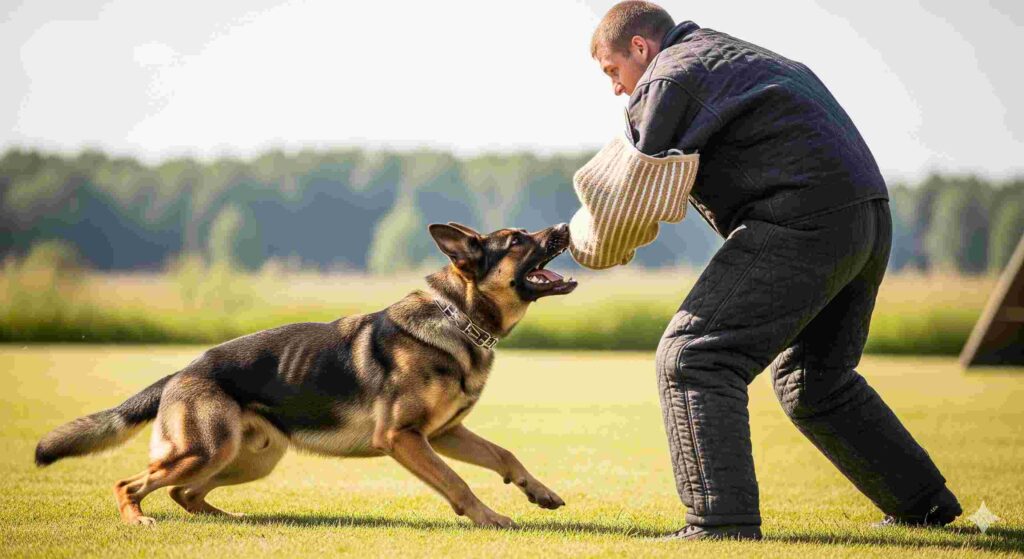
Advanced training is for mature dogs only and requires caution. Commands like attack and release must be taught with strict discipline to avoid accidents.
Practice scenario drills such as guarding the front door, monitoring the yard, or responding to a staged intruder.
The key is control: your German Shepherd should stop instantly when commanded. This ensures safety for both your family and the public.
Common Mistakes to Avoid in Training
Over-Encouraging Aggression
One major mistake beginners make when figuring out how to train a guard dog German Shepherd is focusing too much on aggression.
A dog trained only to attack may become unpredictable, even toward family or guests.The goal is balance.
Encourage protective behaviors like controlled barking or focused watching, not blind aggression.
A disciplined German Shepherd knows when to relax and when to protect keeping your household both safe and welcoming.
Lack of Consistency and Reinforcement
Another common issue is inconsistent practice. Training once or twice a week is not enough. German Shepherds need daily reinforcement to build lasting discipline.
Short, consistent sessions of 10–15 minutes work best. Pair correct responses with rewards, praise, treats, or play. Without reinforcement, dogs may forget commands or lose motivation.
For anyone serious about how to train a guard dog German Shepherd, consistency is the difference between a trustworthy protector and a dog that obeys only sometimes.
When to Seek Professional Help
Recognizing When DIY Isn’t Enough
While many owners can manage the basics, there are times when professional guidance is essential.
If your dog shows extreme fear or uncontrollable aggression, seek expert help immediately. Fearful dogs may lash out, while aggressive ones can become unsafe around family or visitors.
Professional trainers are also vital for advanced bite or protection drills. These exercises require precision, mistakes can create dangerous behaviors, such as refusing to release on command.
Benefits of Professional Trainers for Security Needs
Professional trainers design programs tailored to your lifestyle, whether you need family protection or high-security defense.
They run realistic drills, like guarding entrances or responding to intruders, ensuring your dog reacts correctly under pressure.
Another benefit is faster, safer results. Trainers know how to guide German Shepherds without confusion or harmful methods.
For first-time owners, this provides peace of mind while shaping a reliable, disciplined protector.
Seeking professional help is not failure, it’s responsibility. With expert support, your German Shepherd can reach their full potential as both a loyal family companion and a dependable guard dog.
Maintaining Your German Shepherd’s Guard Skills
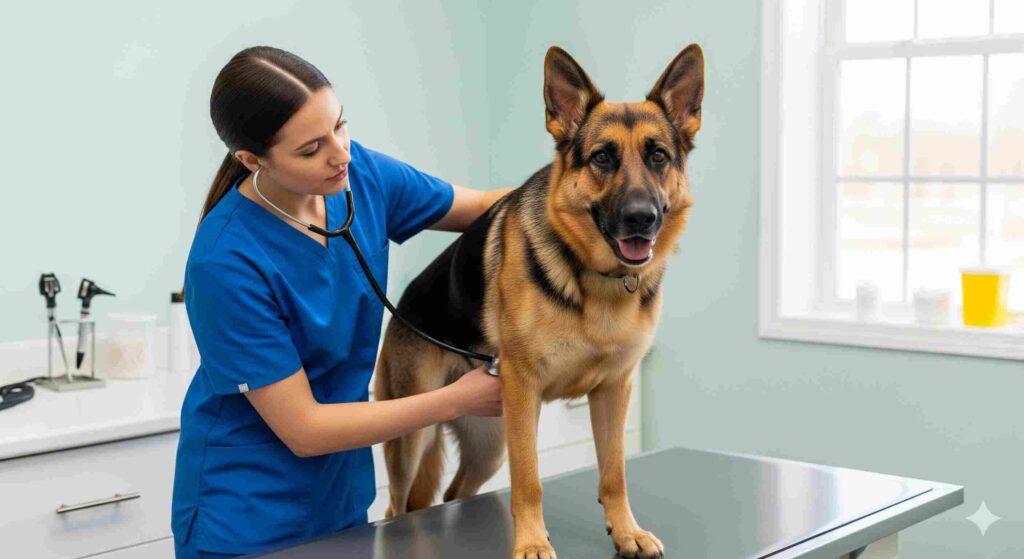
Regular Training Sessions and Refreshers
Guard dog training is not something you do once and then forget. To keep your German Shepherd sharp, schedule weekly drills for commands such as sit, stay, watch, and release.
Regular practice ensures quick, reliable responses in real-life situations. If training is skipped for long periods, your dog may hesitate or even forget commands.
Playtime can double as training reinforcement. Tug-of-war helps strengthen the release command, while fetch reinforces recall.
Turning lessons into games keeps your German Shepherd engaged and eager to participate.
When learning how to train a guard dog German Shepherd, remember that short, positive sessions about 10 to 15 minutes are far more effective than long, stressful ones.
Health and Fitness for Guard Dogs
Even the best-trained guard dog cannot perform well without good health. Nutrition is a key part of keeping your German Shepherd alert and strong.
Provide a diet rich in high-quality protein to build muscle, balanced fats and carbohydrates for energy, and plenty of fresh water.
Your vet may also recommend supplements for joint support and overall well-being.Exercise is equally important.
Daily walks, running sessions, agility drills, and strength-building activities help maintain stamina and focus.
A fit German Shepherd is not only faster and stronger but also more alert to potential threats.
For anyone serious about how to train a guard dog German Shepherd, combining consistent training with proper health care ensures lasting results.
A disciplined, energetic, and well-cared-for German Shepherd will continue to serve as both a trusted family companion and a dependable protector for years to come.
Final Thoughts: Building the Perfect Protector
A loyal, well-trained German Shepherd is not only a protector but also a loyal family companion. When learning how to train a guard dog German Shepherd, see it as more than security; it’s a journey that builds trust, love, and discipline.
The goal is to shape a dog that is both dependable in protection and affectionate at home.A strong protector should never become a danger within the home.
With consistency, health care, and love, your German Shepherd can grow into the perfect protector alert, dependable, and always by your side.
Learning how to train a guard dog German Shepherd is just the beginning. Don’t stop here, visit our website for more expert training guides and home security tips that will keep your loved ones safe.

